
Maharashtra is a state in the western and central peninsular region of India occupying a substantial portion of the Deccan Plateau. Maharashtra is the second-most populous state in India and the second-most populous country subdivision globally. It was formed on 1 May 1960 by splitting the bilingual Bombay State, which had existed since 1956, into majority Marathi-speaking Maharashtra and Gujarati-speaking Gujarat. Maharashtra is divided into 6 divisions and 36 districts, with the state capital being Mumbai, the most populous urban area in India, and Nagpur serving as the winter capital. Marathi is the most widely spoken language and is the state's only official language.

Bal Gangadhar Tilak, endeared as Lokmanya, was an Indian nationalist, teacher, and an independence activist. He was one third of the Lal Bal Pal triumvirate. Tilak was the first leader of the Indian independence movement. The British colonial authorities called him "The father of the Indian unrest." He was also conferred with the title of "Lokmanya", which means "accepted by the people [as their leader]". Mahatma Gandhi called him "The Maker of Modern India".

Gopal Krishna Gokhale was an Indian 'moderate' political leader and a social reformer during the Indian independence movement. Gokhale was a senior leader of the Indian National Congress and the founder of the Servants of India Society. Through the Society as well as the Congress and other legislative bodies he served in, Gokhale campaigned for Indian self-rule and for social reforms. He was the leader of the moderate faction of the Congress party that advocated reforms by working with existing government institutions.

Pune is the seventh most populous city in India and the second-largest city in the state of Maharashtra, with an estimated population of 7.4 million as of 2020. It has been ranked "the most liveable city in India" several times. Along with the Pimpri-Chinchwad municipal corporation and the three cantonment towns of Camp, Khadki, and Dehu Road, Pune forms the urban core of the eponymous Pune Metropolitan Region (PMR).
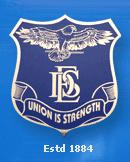
Fergusson College is an autonomous public college offering various courses in the streams of arts and science in the city of Pune, India. It was founded in 1885 by the Deccan Education Society. Professor Vaman Shivram Apte was its first principal. Social reformer, journalist, thinker and educationist Gopal Ganesh Agarkar served as the second principal from August 1892, till his death in June 1895.
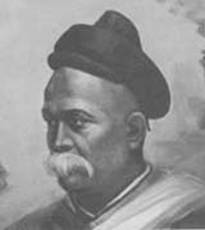
Rao Bahadur Mahadev Govind Ranade, popularly referred to as Justice Ranade, was an Indian scholar, social reformer, judge and author. He was one of the founding members of the Indian National Congress party and owned several designations as member of the Bombay legislative council, member of the finance committee at the centre, and judge of the Bombay High Court, Maharashtra.

Pandurang Mahadev Bapat, popularly known as Senapati Bapat, was a figure in the Indian independence movement. He acquired the title of Senapati, meaning commander, as a consequence of his leadership during the Mulshi satyagraha. In 1977, the Indian government issued a postage stamp to commemorate him.

The Chitpavan Brahmin or Konkanastha Brahmin is a Hindu Maharashtrian Brahmin community inhabiting Konkan, the coastal region of the state of Maharashtra. Initially working as messengers and spies in the late seventeenth century, the community came into prominence during the 18th century when the heirs of Peshwa from the Bhat family of Balaji Vishwanath became the de facto rulers of the Maratha empire. Until the 18th century, the Chitpavans were held in low esteem by the Deshastha, the older established Brahmin community of Maharashtra region who considered the Chitpavans as Parvenus or newcomers to the Brahmin class.
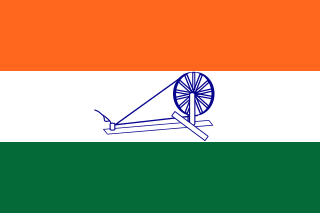
The Indian National Congress was established when 72 delegates from all over the country met at Bombay in 1885. Prominent delegates included Dadabhai Naoroji, Surendranath Banerjee, Badruddin Tyabji,Pherozeshah Mehta W. C. Bonnerjee, S. Ramaswami Mudaliar, S. Subramania Iyer and Romesh Chunder Dutt. The Englishman Allan Octavian Hume, a former British civil servant was one of the founding members of the Indian National Congress.
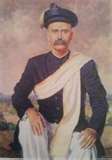
Gopal Ganesh Agarkar was an Indian social reformer, educationist, and thinker from Maharashtra, India.
Ganesh Vasudeo Joshi, popularly known as Sarwajanik Kaka, was a lawyer, social reformer, and political activist. He was a founding member of Poona Sarvajanik Sabha. He was a great support system for the noble works initiated and carried out successfully by Honorable Justice Mahadev Govind Ranade. He was a social activist in Pune when Maharashtrian revival began, and he was the elderly guiding philosopher when Tilak and Agarkar's generation gave impetus to Indian independence struggle. Joshi also represented Vasudev Balwant Phadke as his lawyer in Phadke's trial.
Pune is the 9th most populous city in India and the largest in the state of Maharashtra. The history of the city is closely related to the rise of the Maratha empire from the 17th–18th century. During the 18th century, Pune became the political centre of the Indian subcontinent; as the seat of the Peshwas, who were the prime ministers of the Maratha Empire.
The Hindu Revolution is a term in Hindu nationalism referring to a sociopolitical movement aiming to overthrow untouchability and Casteism to unified social and political community to create the foundations of a modern nation

The Deccan Education Society is an organisation that runs 43 education establishments in Maharashtra, India. Its main branch is situated in Pune.

Poona Sarvajanik Sabha,, was a sociopolitical organisation in British India which started with the aim of working as a mediating body between the government and people of India and to popularise the peasants' legal rights. It started as an elected body of 95 members elected by 6000 persons on April 2, 1870. The organisation was a precursor to the Indian National Congress which started with its first session from Maharashtra itself. In 1875 the Sabha sent a petition to the House of Commons demanding India’s direct representation in the British Parliament. The Pune Sarvajanik Sabha provided many of the prominent leaders of national stature to the Indian freedom struggle including Bal Gangadhar Tilak. It was formed in 1867 by Ganesh Vasudeo Joshi.
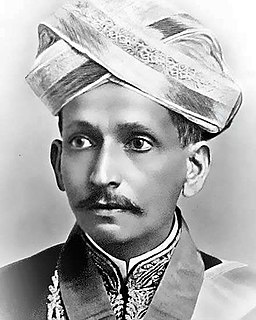
Sir Mokshagundam VisvesvarayaFASc, more commonly known as Sir MV, was an Indian civil engineer, statesman and the 19th Diwan of Mysore, serving from 1912 to 1919. He started his primary education in Bangalore, received his BSc degree from the University of Madras, and then DCE from the University of Bombay through its affiliated institution and 3rd oldest Engineering College in Asia, College of Engineering, Pune. He received India's highest honour, the Bharat Ratna, in 1955. He was knighted as a Knight Commander of the British Indian Empire (KCIE) by King George V for his contributions to the public good. His birthday, 15 September, is celebrated as Engineers' Day in India, Sri Lanka and Tanzania in his memory. He was the Chief Engineer of Krishna Raja Sagara dam in the north-west suburb of Mysuru city, Laxmi Talav Dam near Kolhapur in south-west Maharashtra, and also served as one of the Chief Engineers of the flood protection system for the city of Hyderabad.

Maharashtra is a state in the western region of India. It is India's second-most populous state and third-largest state by area.The region that comprises the state has a long history dating back to the 4th century BCE, although the present-day state was not established until 1960 CE.
Mahadev Joshi, also known as S.M. Joshi (1904-1989), was an Indian independence activist, a member of the Socialist (Samajwadi) Party, a Member of Parliament, and leader of Samyukta Maharashtra Samiti.
Gangadharrao Balkrishna Deshpande also known as Lion of Karnataka, Khadi Bhageeratha of Karnataka, was an Indian activist who was the leader of the Indian independence movement against British colonial rule from Belgaum and the right-hand man of both Lokamanya Tilak and Mahatma Gandhi in succession. Deshpande considered Lokamanya Tilak as his Guru. Deshpande served as Chairman of Karnataka branch of All-India Spinners' Association, and the All India Village Industries Association for some years. Deshpande was largely responsible for the installation of Premier of Bombay, B. G. Kher.












